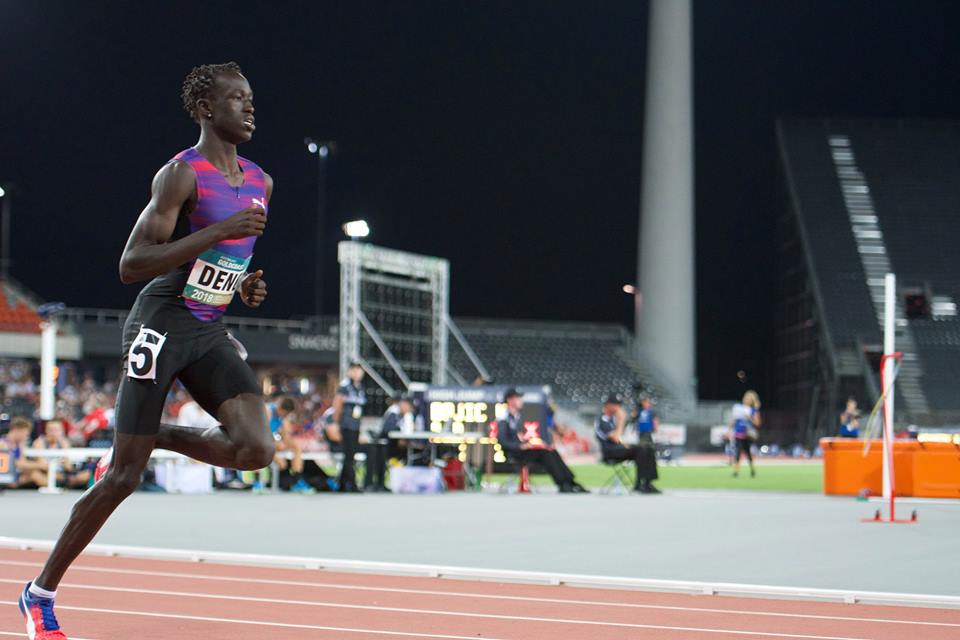A column by Len Johnson – Runner’s Tribe
For half-a-century, Ralph Doubell’s Australian record for 800 metres had defied all-comers. Now, with Joseph Deng running 1:44.21 in Monaco on Friday night, it is gone.
The king of Australian records is dead. Long live the king!

The queen – Charlene Rendina’s women’s record of 1:59.0 – remains extant, but that is a story for another day. With the likes of Georgia Griffith, Carley Thomas, Keely Small and Brittany McGowan all closing in on two minutes this year, hopefully its time is coming (or should that be going).
First things first: and this is a very important thing. Joe Deng is now the fastest Australian male 800 runner in history: he is not the best – not yet, anyway.
That mantle must remain with Doubell. Doubell’s 1:44.40 – the official manual time was 1:44.3 – won him an Olympic gold medal at Mexico City in 1968, and also equalled Peter Snell’s world record. It should rightly be acclaimed as one of the greatest single Olympic performances by an Australian athlete. Make a list of Olympic and world championship middle-distance gold medals won in world record time – it is not a long list.
Until an Australian performs a similar feat, Doubell’s will remain the greatest 800 run by an Australian athlete. After Alex Rowe equalled Doubell’s record back in 2014, also in Monaco, I wrote for Runner’s Tribe that “Rowe was now Doubell’s equal, but he was not equal to Doubell.”
Now, Joe Deng is faster than Doubell, but he, likewise, is not his equal. Perhaps, given the passage of time and the increasing internationalism of athletics over the 50 years since the Mexico City Games. Wilson Kiprugut, the Mexico silver medallist, was probably the first of the great line of Kenyan 800 runners.
Another Kenyan runner, Thomas Saisi, also made the final in Mexico, but there was nothing like the African dominance of today. In London, when David Rudisha won in a world record 1:40.91, five of the eight finalists came from African nations. In Rio, when he retained the title, it was four from eight.
Time, as well as times, may be in Deng’s favour. Six Australians have now broken 1:45: Deng heads the list at 1:44.21, followed by Doubell and Rowe at 1:44.40, Jeff Riseley at 1:44.48, Peter Bol at 1:44.56 and Brisbane 1982 Commonwealth champion Peter Bourke at 1:44.78.
Training partners Deng and Bol have joined the group this year, but Deng now dominates the list. He has four of the eleven sub-1:45 times, four of them this year. Next best is Riseley with three. The others have one each.
Deng has chronological time on his side, too. He is the youngest man on the list, having run his first 1:44 some five weeks short of his 20th birthday. He turned 20 on 7 July, two weeks before his record run. Most 800 runners hit their peak relatively early: Deng will be 21 at next year’s Doha world championships, 22 at the Tokyo 2020 Olympics.
In coaching terms, Justin Rinaldi now has three 1:44 runners – Deng, Rowe and Bol – surpassing Franz Stampfl with two (Doubell and Bourke). I’m sure Justin won’t mind me observing that just as Deng is not yet Doubell’s equal, he has a way to go to match the legendary Stampfl’s coaching record. But he is making up ground.
Additionally, Deng and Bol are both managed by James Templeton, an Australian who knows his way around the world of 800 running. It is a good set-up which is clearly working a treat at the minute.
As already mentioned, we now have a critical mass of women closing in on two minutes and then, surely, Rendina’s 1:59.0. Her record, set in 1976, is a youthful 42 years old compared to the men’s 50-year benchmark.
That, in a nutshell, is the singular achievement of Joseph Deng. When Ralph Doubell ran 1:44.40, he was the best man in the world on the day, and the equal-fastest in the world ever. Since then, world middle-distance running has been moving further away from Australia on times.
At last, albeit by a small margin, an Australian male has closed the gap. And the 800 national record can go back to being an aspiration for all Australian middle-distance runners instead of a road-block they cannot get past.




